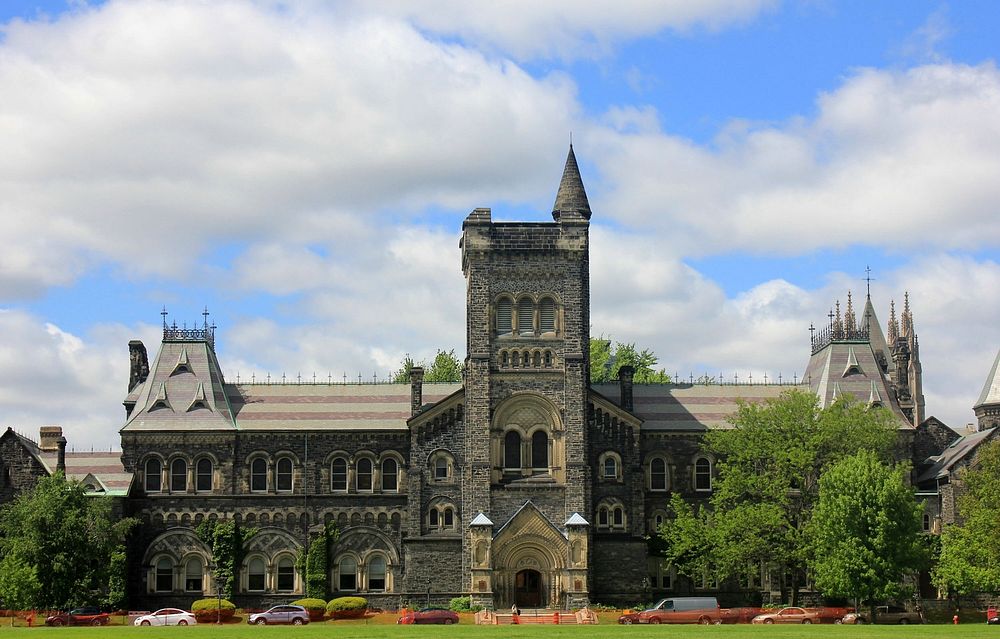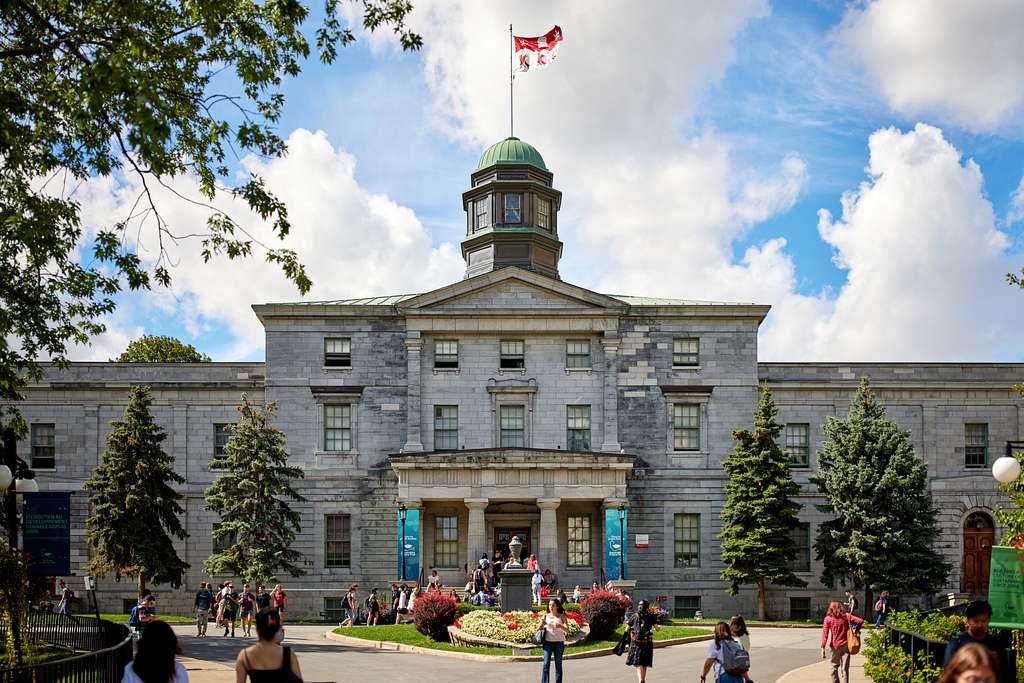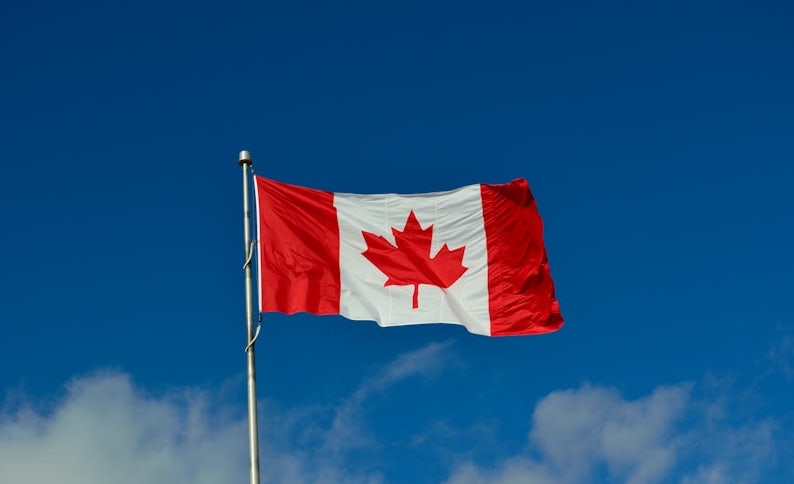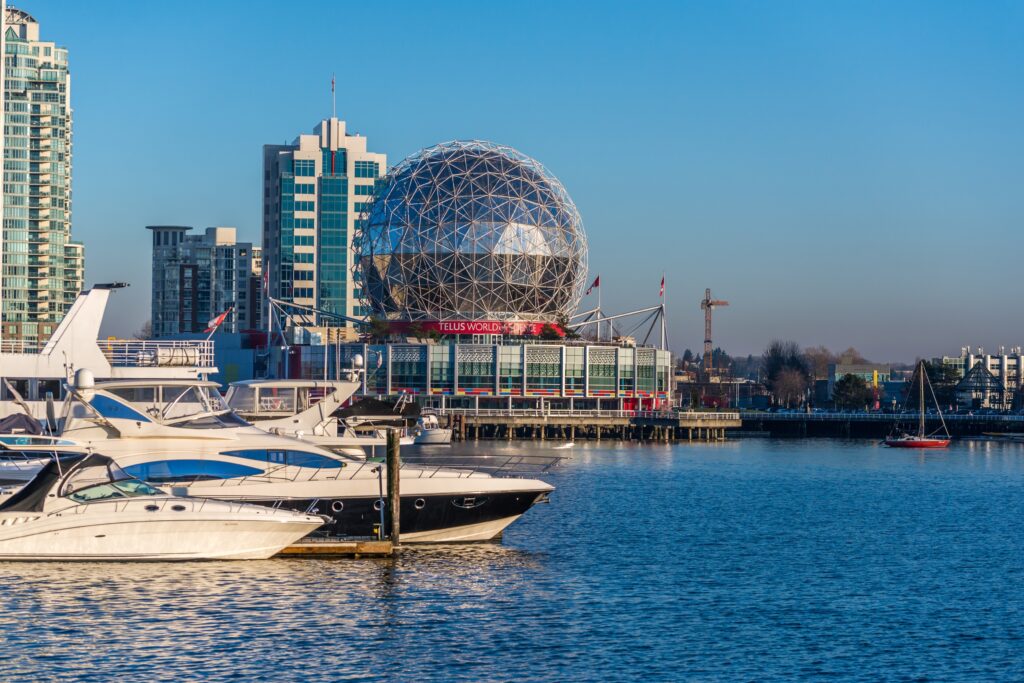Pursuing a Master’s Degree in Canada is an excellent opportunity for many students seeking high-quality education and vibrant multicultural experiences. Besides the UK and the US, Canada has become another top destination for international students due to its prestigious universities, affordable tuition and fees, short learning system, and various work opportunities. According to the latest statistics, about 15%-20% international students come to Canada for Master’s Degree, especially in fields like STEM, MBA, and Education. If you are interested in pursuing a Master’s degree in Canada and want to make more informed decisions about your academic and career growth, this guide will provide basic information about the Master’s Degree in Canada, including universities, cost of living, eligibility criteria, scholarships, and employment opportunities.
Why Pursue Master’s Degree in Canada?
Canada is a multicultural country that focuses on international education and has a world-class education system. It is home to many universities with high rankings in the world. There are rich educational resources for Ms in Canada, and its diverse learning environment allows students to be exposed to different cultures and perspectives, making learning relatively easy. Canada’s Master’s Degree has a 100-year history, and its duration is not fixed, depending on the type of program and degree you choose. Here are some of the reasons why students pursue a master’s degree in Canada.
- Short academic system: The academic system of a master’s degree in Canada is generally 1-2 years, and some specialities, such as the Master of English Teaching of the University of Western Ontario, the Master of Management Analysis at the University of Toronto, only take 1 year or 10 months. Therefore, you can enter the workplace in advance to accumulate work experience.
- Flexible curriculum: Master’s programs in Canada focus on the combination of theory and practice, and many majors have paid internship programs (co-op), such as the Master of Management Science at the University of Waterloo. During the study period, students can get rich teaching assistant and project assistant opportunities, enhancing their competitiveness in employment.
- Rich educational resources: Canadian universities have advanced teaching facilities and research equipment, as well as strong faculty, professors with deep academic attainments and rich practical experience.
- Good graduation work visa policy: Graduates with a Master’s Degree in Canada are eligible for a 3-year graduation work visa (PGWP), regardless of their major and duration of study. This provides students with sufficient time to accumulate work experience and improve their professional skills in Canada, laying a solid foundation for their future career development.
- Various employment opportunities: Canada has a developed economy, diversified industries and a strong demand for all kinds of talents. There are a lot of job opportunities in the fields of finance, science and technology, education, medical care, engineering and so on.
- Easy immigration policy: Canada is an immigrant country, and international students have more opportunities to apply for immigration after graduation. In the federal Express Entry system and provincial nomination program (PNP), a master’s degree usually gets a higher score. Some provinces also have special nomination pathways for master’s graduates.
- Family immigration support: Students of an MS in Canada with study permits can apply for an open work permit for their spouses, subject to certain conditions. Spouses with open work permits can work freely in Canada, and children can attend local public schools and enjoy the same treatment as local students.
- Safe social environment: Canada is relatively safe. There is no gun possession or campus violence in Canadian universities, providing a safe study and living environment for international students.
- Cultural diversity: Canada is a multicultural country, and universities emphasise internationalisation. Studying a Master’s Degree in Canada, you can interact and make friends with classmates and professors from different countries and regions, experience multiculturalism and broaden your international horizons.
- High-quality life: Canada has a high-quality health care system, a comprehensive welfare system and a beautiful natural environment, such as beautiful lakes, forests and mountains, which provide good living conditions for international students.

Top 5 Universities in Canada for Master’s
Once you are sure that you will go to study a Master’s degree in Canada, one of the most important things is to choose a proper university and postgraduate programs for yourself. To help you get a quick knowledge of Canadian universities and make more informed decisions, we have listed the following top 10 universities in Canada for a Master’s degree.
1. University of Toronto
QS World University Ranking 2025: 25th
Popular Master’s Programs: Management Analysis, Science in Applied Computing, Finance, Financial Risk Management, Financial Economics
Founded in 1827, the University of Toronto practises the independent school system. Each school has a high degree of autonomy. The university is recognised as one of the best universities in Canada for Master’s in terms of comprehensive strength. It has high-quality teaching and research, strong faculty and world-class teaching equipment.
2. University of British Columbia
QS World University Rankings 2025: 38th
Popular Master’s Programs: Business Analysis, Management, Journalism, Computer Science, Business Administration
The University of British Columbia was founded in 1908, a member of the U15 League of Research Universities of Canada, the Pacific Rim University League, the Global Alliance of Universities and Institutes of Advanced Study, Universitas21 and the Association of Commonwealth Universities. It combines teaching and research in undergraduate and graduate programs, such as humanities, natural sciences, medicine, law and business.
3. McGill University
QS World University Rankings 2025: 29th
Popular master’s programs: Management Analysis, Mechanical Engineering, Computer Science, Urban Planning, Business Administration, Economics
McGill University is one of the top universities in Canada for MS. Established in 1821, this leading Canadian public research university has 22 faculty colleges and 4 affiliated hospitals offering more than 340 undergraduate academic programs and more than 250 doctoral and master’s programs. The university is famous for its world-class medicine, literature, law, engineering, natural sciences and agronomy.
4. University of Alberta
QS World University Rankings 2025: 96th
Popular master’s programs: Engineering in Chemical and Materials Engineering, Science in Civil and Environmental Engineering, Science in Computer Science, Science in Chemical Engineering, Science in Materials Engineering
The University of Alberta is one of the top universities in Canada for master’s. It was founded in 1908 and is located in Edmonton, Alberta, Canada. The University of Alberta is best known in the disciplines of earth sciences, petrochemicals, chemistry, business, agronomy, and biomedical sciences.
5. University of Waterloo
QS World University Rankings 2025: 115th
Popular master’s programs: Management Science, Business Technology Entrepreneurship, Sports Functionality, Actuarial Science, Quantitative Finance, Data Science and Artificial Intelligence.
The University of Waterloo is a medium-sized, world-class, research-oriented public university founded in 1957. It has Canada’s largest engineering faculty and the world’s largest study and internship cooperative education (co-op). Besides, the University of Waterloo is one of the best universities in North America, and its teaching and research level of mathematics, computer science, and engineering disciplines are among the top in the world.
Best Postgraduate Degree in Canada for International Students
| Popular Programs for Master’s in Canada | University |
|---|---|
| Computer Science & AI | University of Toronto |
| Business Administration | The University of York |
| Engineering | McGill University |
| Public Health & Data Science | McMaster University |
| Environmental Science & Renewable Energy | University of British Columbia |
Requirements for Masters in Canada

To pursue postgraduate studies in Canada’s multicultural academic environment, understanding and meeting specific requirements for a Master’s in Canada is essential. Each Canadian university sets its own eligibility criteria for Master’s programs, making careful preparation crucial before application. Typical requirements for a Canadian Master’s degree include:
- Undergraduate Degree
Domestic students should have a 4-year undergraduate bachelor’s degree from an accredited university, or have completed at least the first semester of the fourth year of college, and can provide proof that they can obtain a diploma and a certificate of graduation in the same year.
For international students, the acceptable undergraduate academic system needs to be judged according to specific grades and institutional policies. The higher your grades are, the more competitive you are.
- Academic Achievements
Domestic students: the average score of undergraduate courses must be 80% or above, and some schools pay more attention to the scores of the last two years of undergraduate courses or the last 20-30 courses.
North American applicants: a GPA of 3.0 or higher (out of 4.0) is generally required.
UK applicants: Degree grades of 2:1 or first class are recommended, with a minimum degree of 2:2.
Australia and other countries with 3-year undergraduate programs: a Bachelor’s degree with honours is required.
- English Language Proficiency Test
IELTS: ≥6.5
TOEFL: ≥86
PTE: ≥55
CAEL: ≥60
If you do not have language scores but have gained a bachelor’s degree, you can apply for a master’s degree dual enrollment, a master’s degree pre-master’s program or a language + MBA program. Students who have studied in an English-speaking country for more than 3 years or have received instruction in English for 3 years or more may not need to meet the language requirement.
- Standardized Scores
GMAT: ≥550 for business majors
GRE: ≥310 for STEM or some other major like biochemistry, biology, chemistry, English literature, mathematics, physics, psychology, etc.
- Professional Background
Most majors: students are required to have the appropriate academic background.
Some majors: Business majors, especially MBA, some master’s degrees in education, and computer master’s degrees in Canada can accept cross-major applications.
Tuition Fees for Master’s Degree in Canada
Canada is an ideal choice for those pursuing cost-effective master’s studies for its excellent quality of education and more affordable cost of living. Compared with the United States and the United Kingdom, Master’s degree fees in Canada are 20%-40% lower. The country also offers more relaxed part-time work policies and a maximum of three years of work visas for graduates of Master’s Degree. Below are the details of Canada Master’s fees.
| Master’s program | International Student Tuition Range (CAD) | Domestic Student Tuition Range (CAD) |
|---|---|---|
| Arts/Social Sciences | 18,000 – 30,000 | 5,000 – 10,000 |
| Science and Engineering (STEM) | 22,000 – 45,000 | 7,000 – 15,000 |
| Business (MBA) | 30,000 – 75,000+ | 12,000 – 30,000 |
| Medicine/ Law | 25,000 – 60,000 | 8,000 – 20,000 |
Scholarships for Master’s Degree in Canada
Canada provides international master’s students with an extensive and well-structured scholarship ecosystem, offering financial support ranging from partial tuition waivers to full-ride awards. These funding opportunities are available through three primary sources:
- University-Sponsored Awards: entrance scholarships, departmental funding, and research/teaching assistantships
- Government-Funded Programs: the prestigious Vanier Canada Graduate Scholarships and Canada Graduate Scholarships-Master’s Program
- Private and Corporate Sponsorships: industry-specific awards and research partnerships like Mitacs Accelerate

How to Apply for a Master’s Degree in Canada
The applications for a Master’s Degree in Canada usually need to be prepared 12-18 months in advance. The process covers key aspects such as school selection and orientation, preparation of materials, language tests, and visa applications. The deadlines and admission requirements for different universities and majors may vary. Below are the general core steps for your reference.
- Determine the target universities and majors
Learn about the majors and admission requirements of the Master’s Degree in Canada on the official website of each school you are interested in.
2. Prepare academic materials
prepare transcripts that need to be stamped or notarised by the school, and the proof of language test scores. Also, write a personal statement highlighting your research interests and career goals to demonstrate your strengths.
- Submit an online application
Submit the online application through the official website or the OUAC/ApplyBoard system of the university you want to apply to, and pay $100-$200 application fee.
4. Apply for a Study Permit
After gaining admission, prepare documents such as financial proof and a notarised criminal record. Submit the application through IRCC’s official website. The processing period is about 8-12 weeks, so it is recommended to apply early.
5. Arrange accommodation and travel
Looking for student accommodation in Canada in advance, in case there are fewer housing choices left. If you fail to apply for on-campus residence, you can also find the ideal student accommodation near your campus through a reliable platform, like uhomes.com.
Jobs after Master’s in Canada
Many students pursue a Master’s Degree in Canada to find a better job and earn more money. Canada has a strong demand for skilled professionals, offering many job opportunities for international graduates. The career you pursue is largely related to your field of study. Most postgraduates find positions in industries like science and technology, finance and consulting, government organisations, research institutions and their own start-ups. About 15% of postgraduates choose to continue their studies, especially in life sciences and theoretical physics. In recent years, an increasing number of students with a Master of Arts degree in Canada have transitioned to digital marketing and UX design, making a career change through a 2-3 month certificate program.
Post-Graduate Work Permit after Master’s in Canada
A Post-Graduate Work Permit(PGWP) is one of the best post-study work opportunities in Canada. International students who have completed a master’s degree in Canada can apply for a PGWP for up to 3 years after graduation. It’s noted that the application of PGWP should be submitted within 180 days of graduation. The applicants should graduate from a regular Canadian institution and complete full-time study for at least 8 months. Besides, PGWP is not renewable but can be converted to permanent residence through immigration.
Top Recruiters for MS in Canada
A master’s degree in Canada makes graduates more competitive for prestigious job opportunities in diverse industries. A lot of universities in Canada have strong ties with leading employers worldwide, providing graduates more channels to do internships and find jobs in fields like technology, finance, healthcare, and engineering. Below is a breakdown of the top recruiters for MS in Canada.
| Industry | Top Recruiters | Target Universities | Positions |
|---|---|---|---|
| Technology | Google, Amazon, Microsoft, Shopify, IBM, NVIDIA | UofT, Waterloo, UBC, McGill, SFU | Software Engineer, Data Scientist, AI Researcher |
| Finance & Consulting | RBC, TD, Scotiabank, Deloitte, PwC, KPMG, McKinsey, BCG | Rotman (UofT), Ivey (Western), Schulich (York) | Financial Analyst, Consultant, Risk Manager |
| Engineering & Energy | SNC-Lavalin, Bombardier, TC Energy, Shell, Tesla, BlackBerry | UAlberta, UWaterloo, UCalgary, McMaster | Project Engineer, Energy Analyst, Automotive Specialist |
| Healthcare & Pharma | Johnson & Johnson, Pfizer, Health Canada, Toronto General Hospital, Roche | UofT, McGill, UBC, McMaster | Clinical Researcher, Healthcare Consultant |
| Public Sector & NGOs | Government of Canada, United Nations, World Bank, Canadian Institutes of Health Research (CIHR) | Carleton, OttawaU, Dalhousie, UManitoba | Policy Analyst, Program Manager, Research Officer |
Conclusion
This blog gives a comprehensive perspective on a Master’s degree in Canada, from the best universities, industry-aligned programs, to job opportunities. As one of the most popular destinations for studying abroad, Canada offers students high-quality education, a multicultural learning experience, and an affordable living environment. Whether you want to upgrade your qualification, conduct cutting-edge research, or have a better career, a master’s degree in Canada is a nice step toward long-term success.
FAQ
How much is the cost of a master's degree in Canada?
The cost of a master’s degree in Canada is between CAD $20,000 to $50,000 per year, depending on the specific program you choose. The tuition and fees of business management like MBA may reach CAD $ 75,000+ per year. The cost of living in Canada is about CAD $15,000 per year.
How long is a masters degree in Canada?
A Master’s degree in Canada takes 1 to 2 years to complete. The specific duration varies depending on the program you choose.
What is the best master’s degree in Canada?
The best master’s degrees in Canada include Computer Science, MBA, Public Health, Engineering and Data Science. They are also the most popular Master’s degrees in Canada among international students for good career prospects.
Who can apply for masters in Canada?
To apply for a master’s in Canada, you need to gain a bachelor’s degree from a recognised institution and have a minimum GPA. Also, you should pass the English language tests like TOEFL or IELTS, and the scores vary depending on the requirements of the university you apply to.
Is it worth going to Canada for masters?
Yes, it is worth going to Canada for masters. Canada is one of the best destinations for studying abroad for its rich education resources, advanced facilities, affordable cost of living and diverse culture.
Does Canada offer 1 year masters?
Yes, Canada offers a 1-year master’s for international students. There are many master’s programs in different fields, and you can choose according to your interests and career plans.
What is the cheapest school to do masters in Canada?
The cheapest universities to do masters in Canada include University of Regina, Memorial University of Newfoundland, University of Manitoba, Simon Fraser University, University of Saskatchewan.







